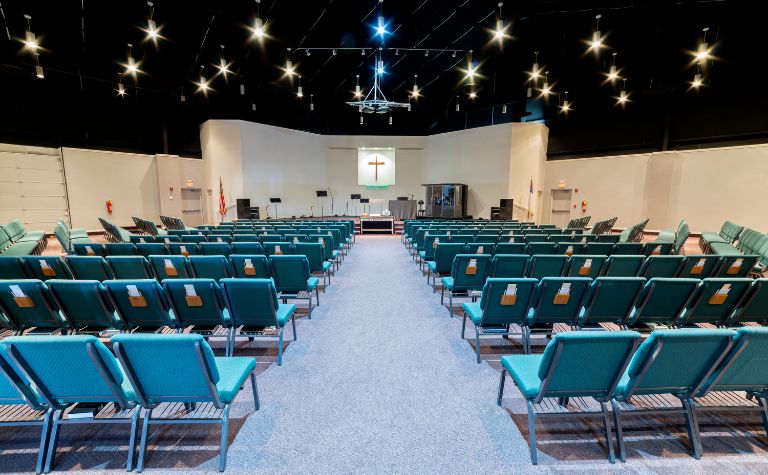Drinking alcohol is a controversial subject in many Christian denominations and churches. Though believers agree that the Bible forbids drunkenness, they don’t agree about what is permissible. Some argue that abstinence is the right choice for all Christians. Others contend that drinking alcohol in moderation is permissible for many believers.
The Assemblies of God holds that Christians shouldn’t drink alcohol even moderately. Abstinence is the best application of the Bible’s teaching on drinking, according to the church’s teachings. Abstinence protects people from drunkenness and alcoholism and helps them serve those who wrestle with such behaviors.
Why does the Assemblies of God advocate abstinence, which is completely refraining from all consumption of alcohol if moderation is permissible? How do they explain Bible verses that seem to permit drinking alcohol? Is the denomination’s position changing? Keep reading to learn more.

What Does the Assemblies of God Believe About Abstinence?
Many Christian denominations have people within them that advocate for abstinence. Some denominations have periods in their history in which they taught and encouraged abstinence, especially during Prohibition in the United States (1920-1933), when the production, transportation, and sale of alcohol were illegal. (Also see What Does the Assemblies of God Believe About Dating?)
The Assemblies of God, in contrast, has always promoted abstinence as the stated, taught, and defended the position of the denomination. Arguments such as these undergird their viewpoint:
- The denomination believes abstinence is the best application of the Bible’s warnings about the dangers of drinking alcohol.
- Abstinence is an expression of a believer’s love for God because it distances them from potential sin and love for other people because many people struggle with alcohol abuse.
- Alcohol ruins individual lives and, often, their families; it has ended marriages; it has been passed down from one generation to the next.
- The gospel of Jesus Christ has an extensive track record of helping people to break free from the bondage they have to alcohol.
- The church shouldn’t give into society’s normalization of alcohol consumption, often celebrated in the entertainment industry.
- Studies that show, for example, that wine is good for a person’s heart has increased the pressure some Christians feel to drink alcohol.
The Assemblies of God reaffirms abstinence: in the wake of society’s general acceptance of alcohol consumption, the Assemblies of God has reaffirmed its stance on complete avoidance.
“As the pressures to participate in moderate consumption of wine and other alcoholic beverages mount, it is imperative that the long-standing Assemblies of God position on abstinence be reaffirmed in light of both the Scriptures and societal practice in order to faithfully witness to each generation and to continue to confront unjust and destructive social ills that harm people whom God loves.” [1]
The result of these arguments is that abstinence is the best option for all Christians: “This position should be proclaimed boldly and clearly throughout our Fellowship, yet humbly and lovingly in faithful ministry to all.” [1] (Also see What Does the Assemblies of God Believe About Dancing?)

What Does the Bible Teach About Drinking Alcohol?
Some Christians argue that believers have the freedom in Christ to drink alcohol as long as it doesn’t lead to sin. Assemblies of God teaches emphasizes that drinking alcohol may be permissible, but it’s not beneficial or constructive and doesn’t edify anyone. Their stance is based on verses like,
- 1 Corinthians 6:12, “‘All things are lawful for me,’ but not all things are helpful. ‘All things are lawful for me,’ but I will not be dominated by anything.” (ESV)
- 1 Corinthians 10:23, “‘All things are lawful,’ but not all things are helpful. ‘All things are lawful,’ but not all things build up.” (ESV)
- 1 Thessalonians 5:11, “Therefore encourage one another and build one another up, just as you are doing.” (ESV)
Alcohol today is different: one of the core arguments for the Assemblies of God’s position on abstinence is the difference between alcohol in Bible times and alcohol today.
Today’s alcoholic drinks are much stronger and incline a person to drunkenness, more so than in the days of the Old and New Testaments. According to the denomination’s teaching,
- Alcohol today is strong: “The strongest drink possible in biblical times was not a modern fortified wine with 14–20 percent alcohol content, much less bourbon or tequila at 40–50 percent alcohol content, but naturally fermented wine or beer with a maximum possible alcohol content of 10–11 percent.” [1]
- Scripture prohibits the consumption of strong alcoholic drinks: “A beverage with high alcohol content was identified by the Hebrew word shekar meaning strong drink. The Hebrew word for wine (yayin) could also be used to identify such a beverage when paired with shekar or when alcohol content is clearly in view (Proverbs 20:1; 23:29–33; 31:4–7).” [1]
- Alcohol in biblical times was very weak: “Scriptural warnings could be carefully observed through the common process of diluting fermented wine, which could produce a beverage that would have been categorized as subalcoholic by today’s standards. It is critical to note that the weakest wine or liquor available today has more alcohol content than the “strong drink” of biblical times; therefore, a strong biblical case can be made against even the moderate consumption of modern alcoholic beverages.” [1]
Also, see What Does the Assemblies of God Believe About Tithing?
Can Assemblies of God Pastors Drink Alcohol?
Assemblies of God pastors aren’t allowed to drink alcohol. The denomination intends its pastors to set an example for believers with regard to abstinence. This teaching is based on observations like,
- “While the Scriptures approvingly recount the stories of different individuals and groups who abstain from alcohol, they especially set a high standard for spiritual leaders (Judges 13; Jeremiah 35).” [1]
- “The clear prohibition of Old Testament priests drinking wine while serving in the tabernacle/temple (Leviticus 10:8–9), the vow of the Nazirite not to drink wine (Judges 13), the tradition of the Rekabites (Jeremiah 35), the examples of John the Baptist and Timothy—all have deep spiritual significance for today’s Christian leaders.” [1]

Abstinence Is the Best Choice According to the Assemblies of God
The Assemblies of God encourages its members not to ask, “can I drink alcohol?” but “should I drink alcohol?” The answer to the question is that believers shouldn’t drink alcohol. The denomination’s reasons are synthesized in these three points,
- Abstinence is the biblical choice. “The Bible clearly warns of the perils of alcoholic beverages and negatively views the consumption of what the context clearly describes as a beverage with high alcohol content. Failure to take seriously those warnings has resulted in untold heartache, misery, and ruin. Unnecessary self-indulgence for a fleeting pleasure may eventuate in unacceptable costs to the individual, the family, and the society at large. Moderation may seem a harmless, private indulgence, but may become a very public detrimental influence.”
- Abstinence is the wise choice. “The tragic results of alcoholism will never come to the one who never takes the first drink. Where alcohol is avoided, drunken abuse will not pull a family apart. A church that teaches and practices abstinence should compassionately rescue those bound by alcohol, but also faithfully warn others of its subtle dangers. Prevention is always better than cure.”
- Abstinence is a moral choice. “It glorifies God, protects the individual, honors fellow believers, preserves families, unifies the church, and blesses society. Abstinence reflects both the direct and indirect moral principles of the Word of God. Abstinence is not moral legalism but Christian discipleship, which inherently involves self-denial in following Christ. ‘The underlying sensibility is taking care of your neighbor, taking care of your family, trying to be a good role model, and not being a stumbling block.’ Abstinence is not grounded in legalism, but in the highest moral attribute of love.”
Also, see What Does the Assemblies of God Believe About Divorce?
Alcohol Can Lead To Many Dangers
The Bible includes many stories and statements that warn about drinking alcohol.
- Alcohol tends to alter one’s judgment (Proverbs 31:4–5)
- It brings woe, sorrow, and strife (Proverbs 23:29)
- It can cause physical harm (Proverbs 23:29,35)
- It can lower one’s inhibitions, leading to shameful behavior, loose speech, promiscuity, and violence (Proverbs 20:1; Isaiah 5:11; Romans 13:13)
- It is a mocker, a deceiver that leads people astray. (Proverbs 23:31–32).
- It is so deceptive is it that one tends at first not to realize the harm it is doing (Proverbs 23:35).
All Views Agree That Drunkenness Is Wrong
The Bible includes many stories and direct statements that make it clear that drunkenness is sinful.
- Noah and his sons (Genesis 9:20–27)
- Lot and his daughters (Genesis 19:30–38)
- God pronounces woe to those who run after their strong drink and are inflamed by wine (Isaiah 5:11,22)
- Drunkenness is listed by Paul among the “acts of the flesh,” and he declares that drunkenness will keep one from inheriting the kingdom of God (Galatians 5:19–21; 1 Corinthians 6:9–10).
- Peter contrasts living the new life in Christ with running with former companions in drunken “wild living” (1 Peter 4:3–4).
Also see What Does the Assemblies of God Believe About Eternal Security?
References:
[1] Source
[2] Source
[3] Source
Related Questions
The Assemblies of God and Baptist traditions are sizable and significant branches of Protestant Christianity. They each have a fascinating history in Europe, America, and as of the twenty-first...
The Assemblies of God and the Church of God (Cleveland, Tennessee) are two of the oldest Pentecostal denominations in the world. There is a lot that unites these Protestant-Christian traditions, yet...
